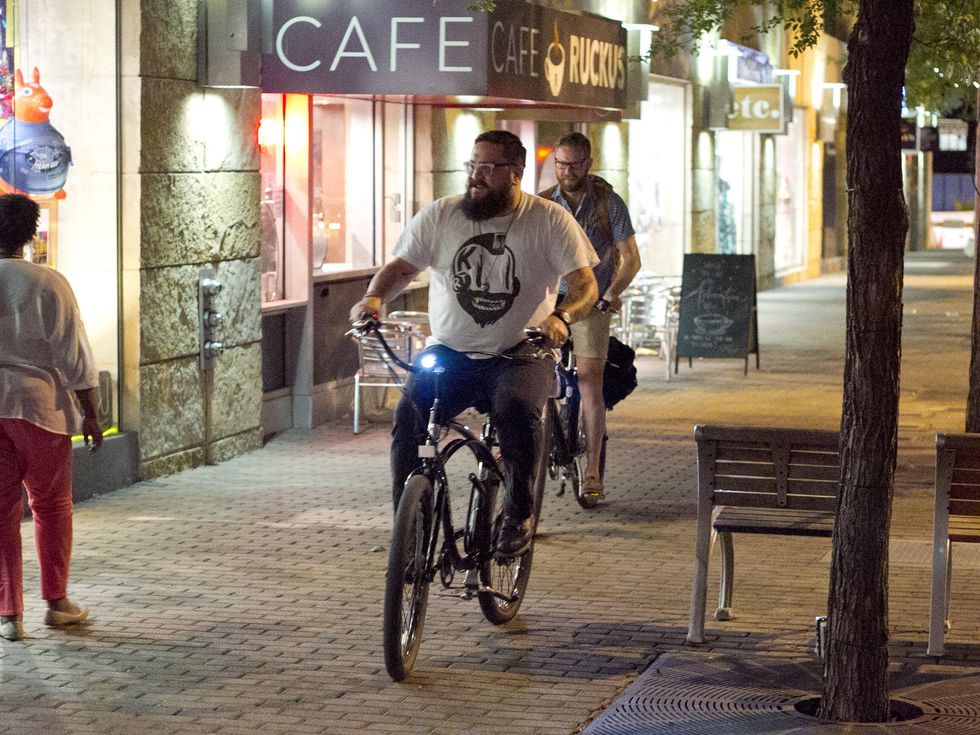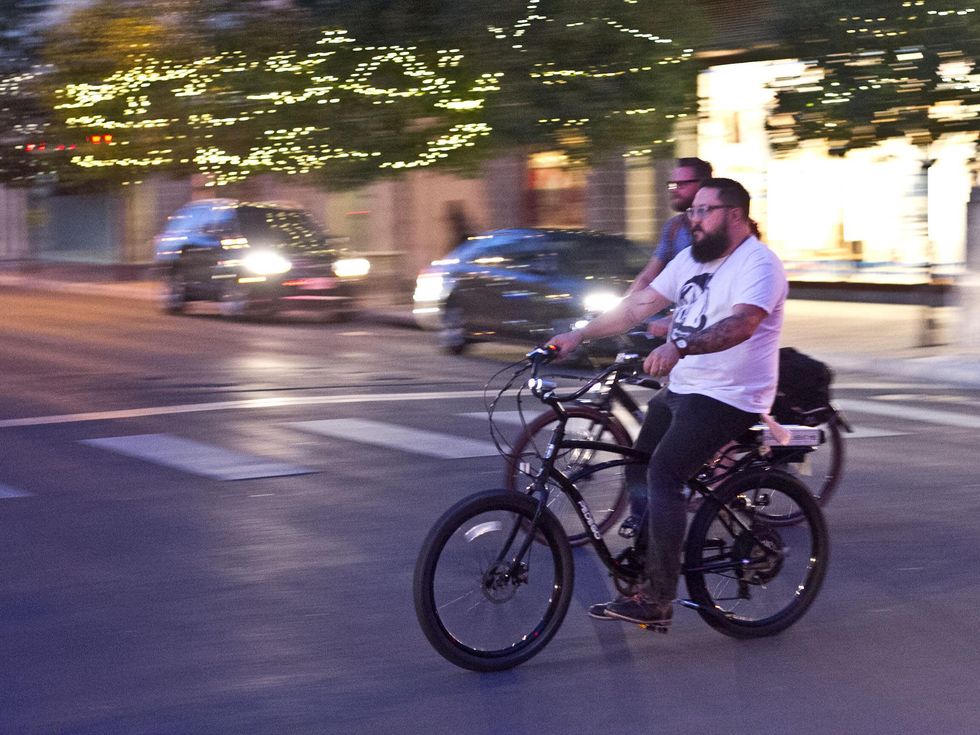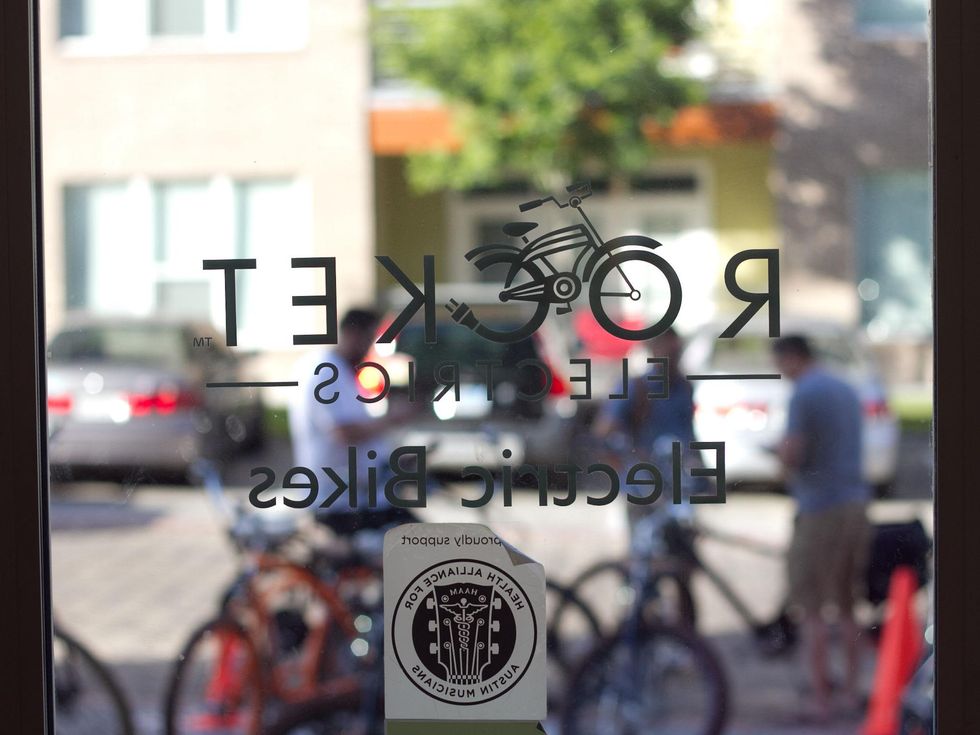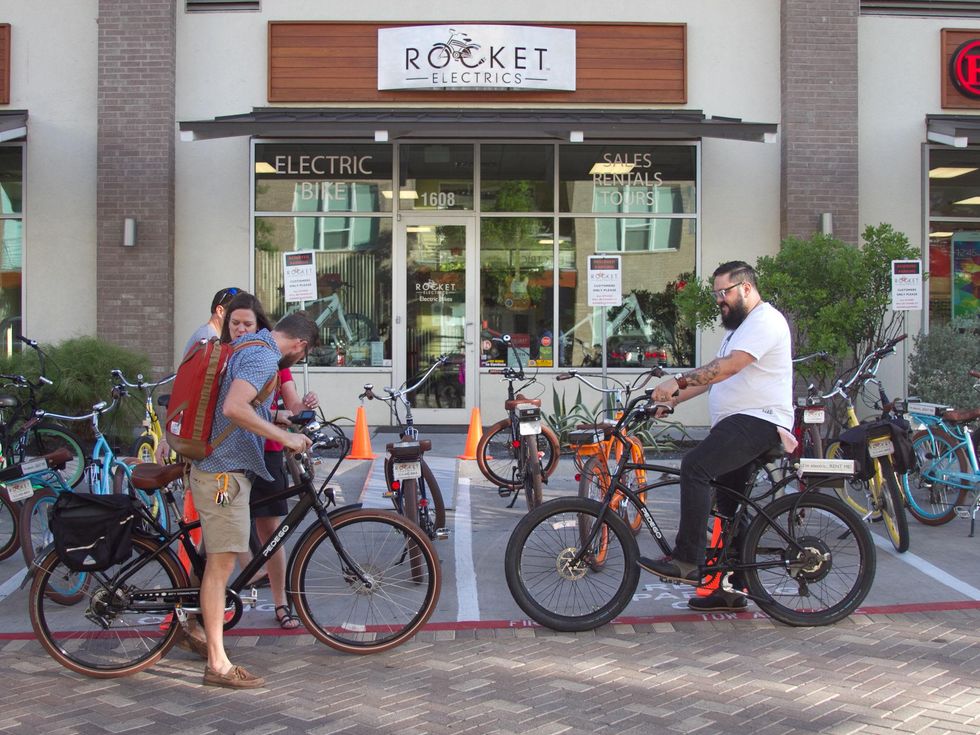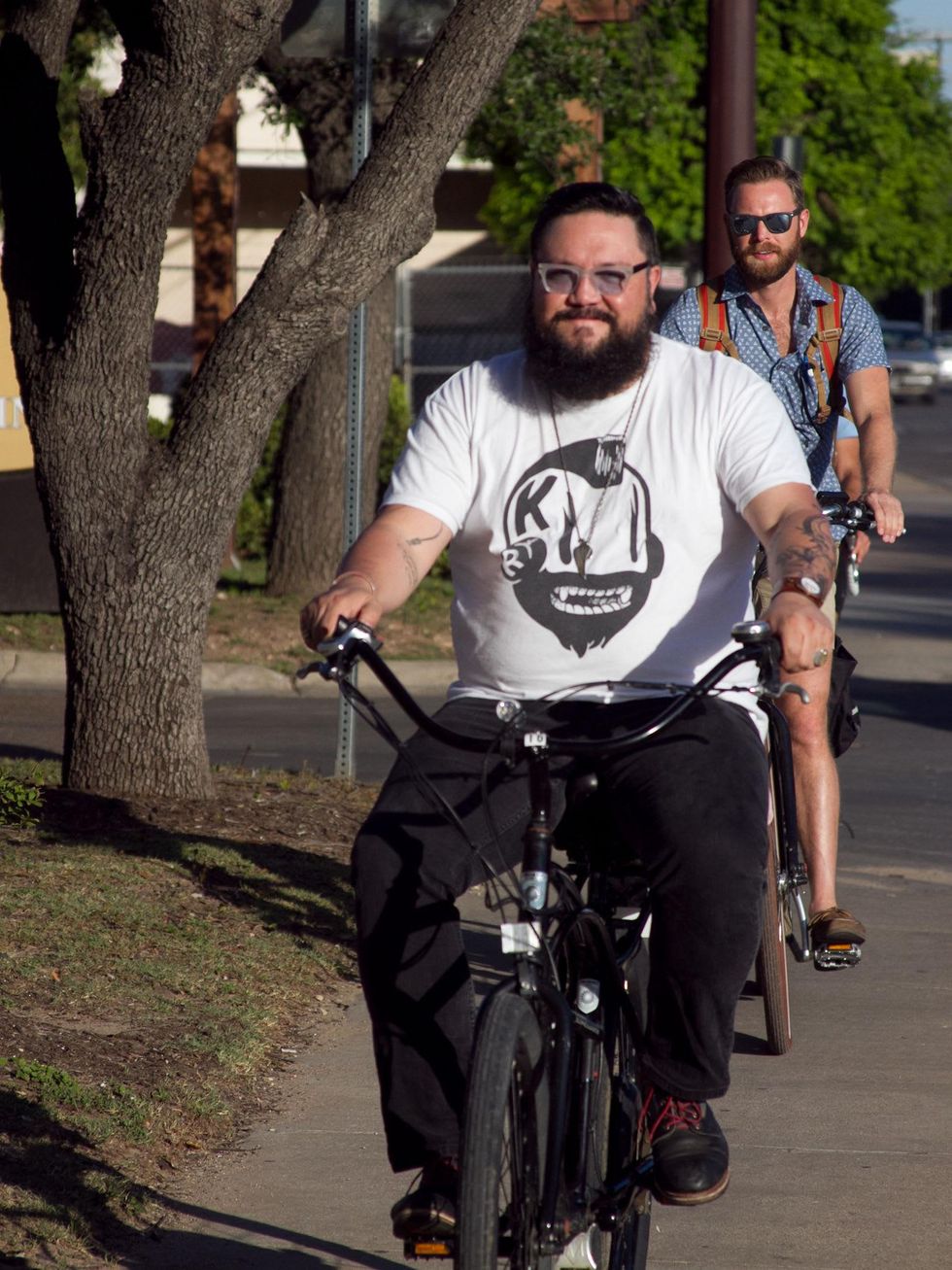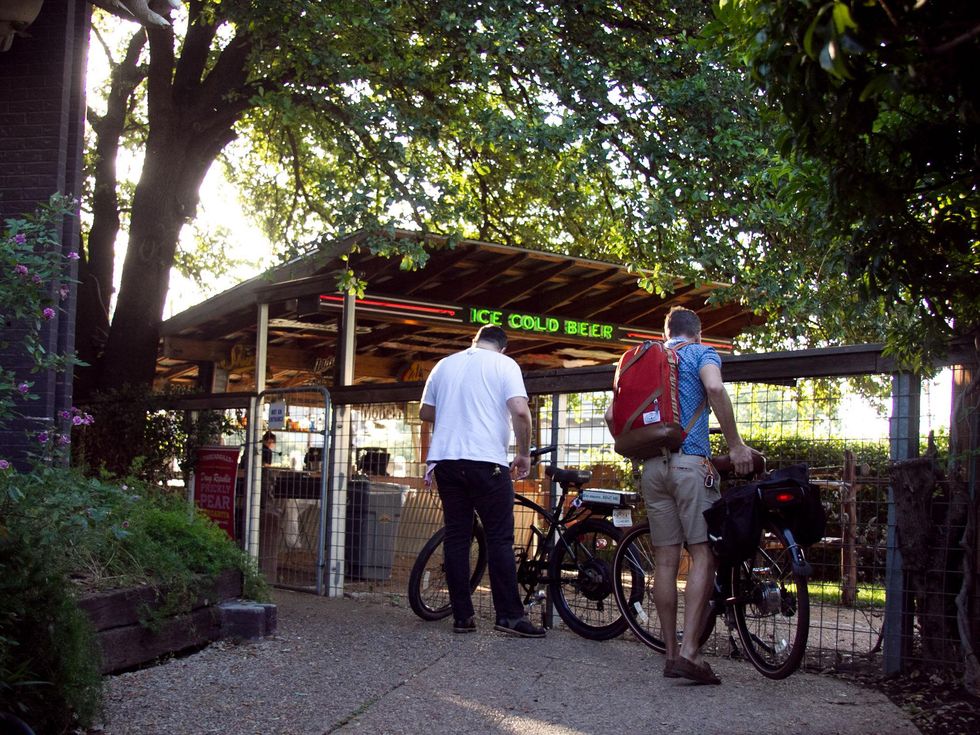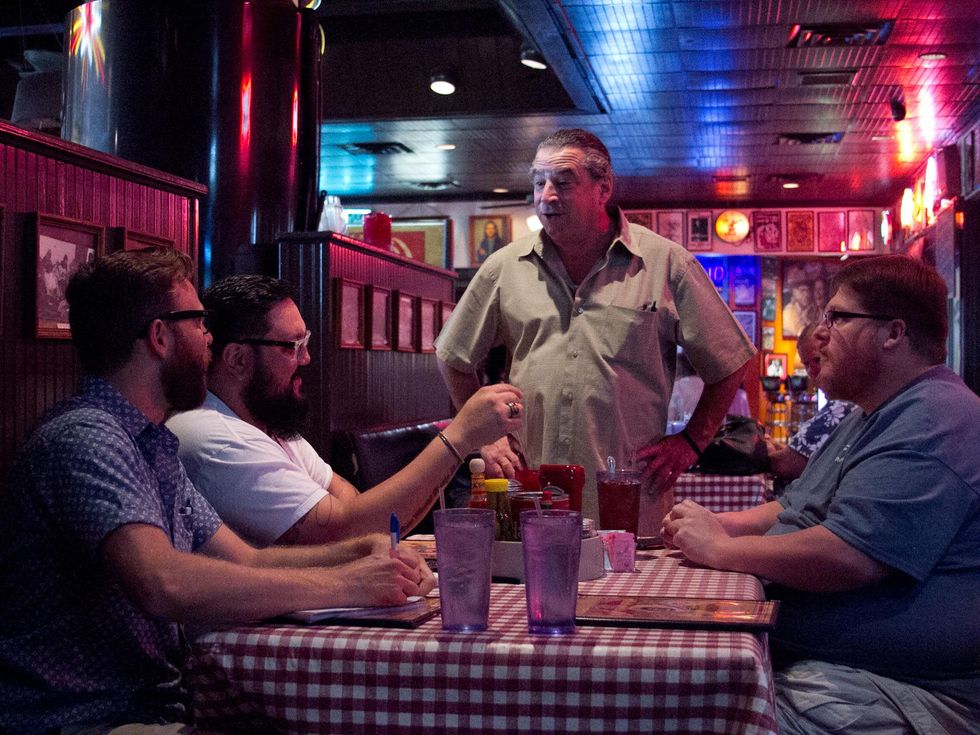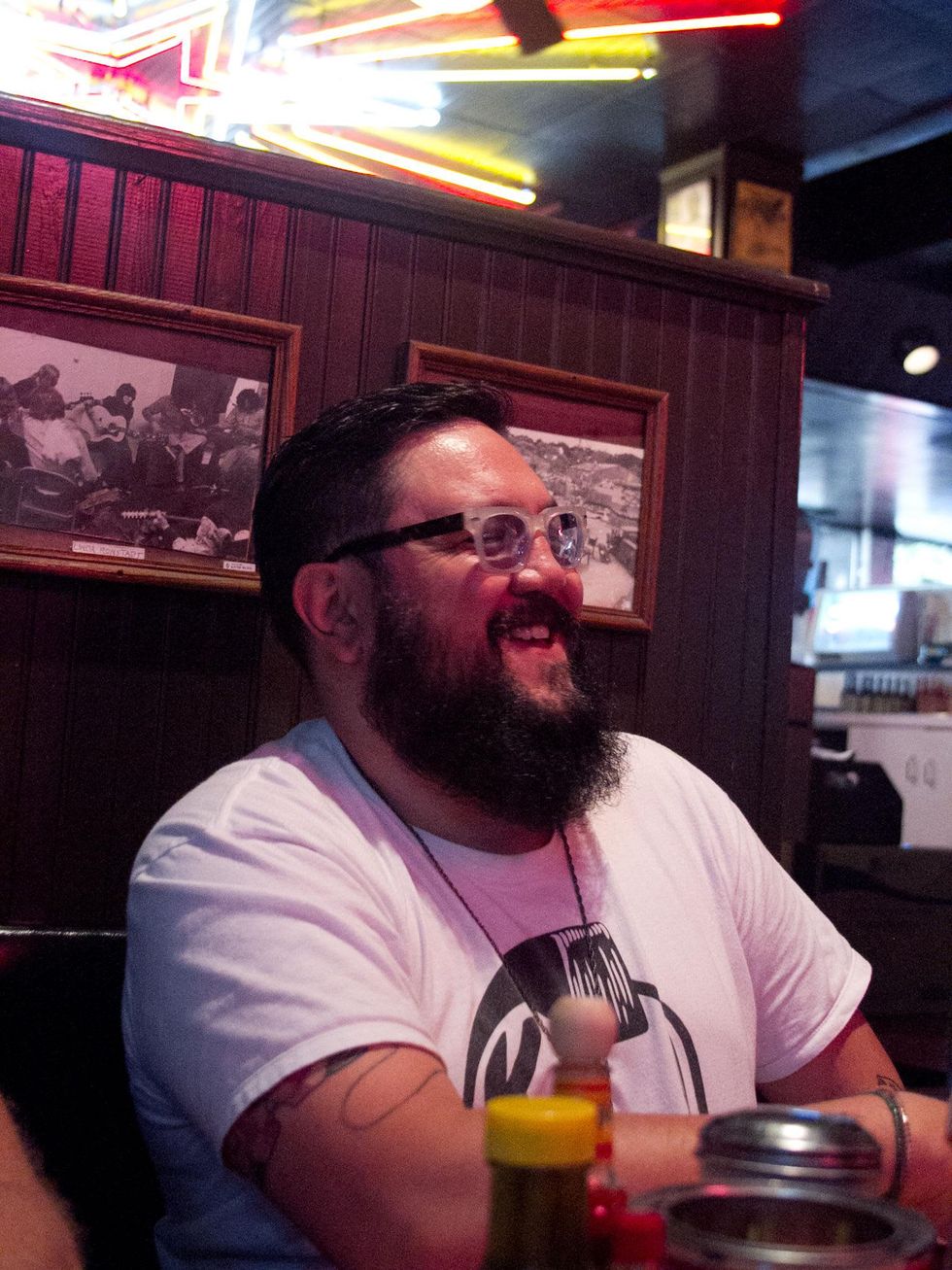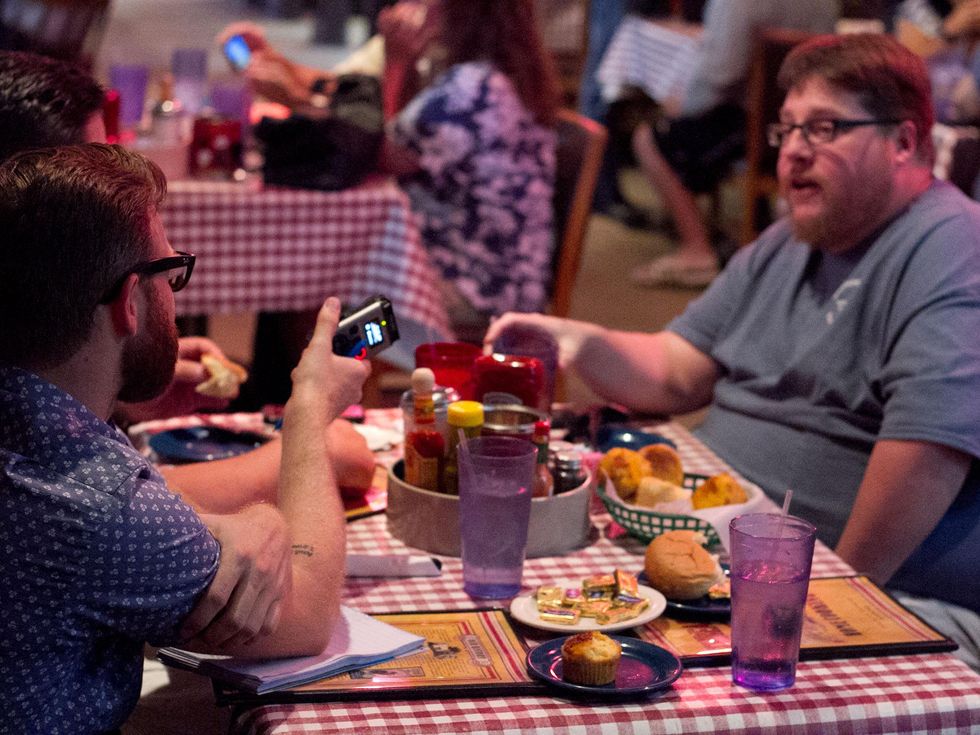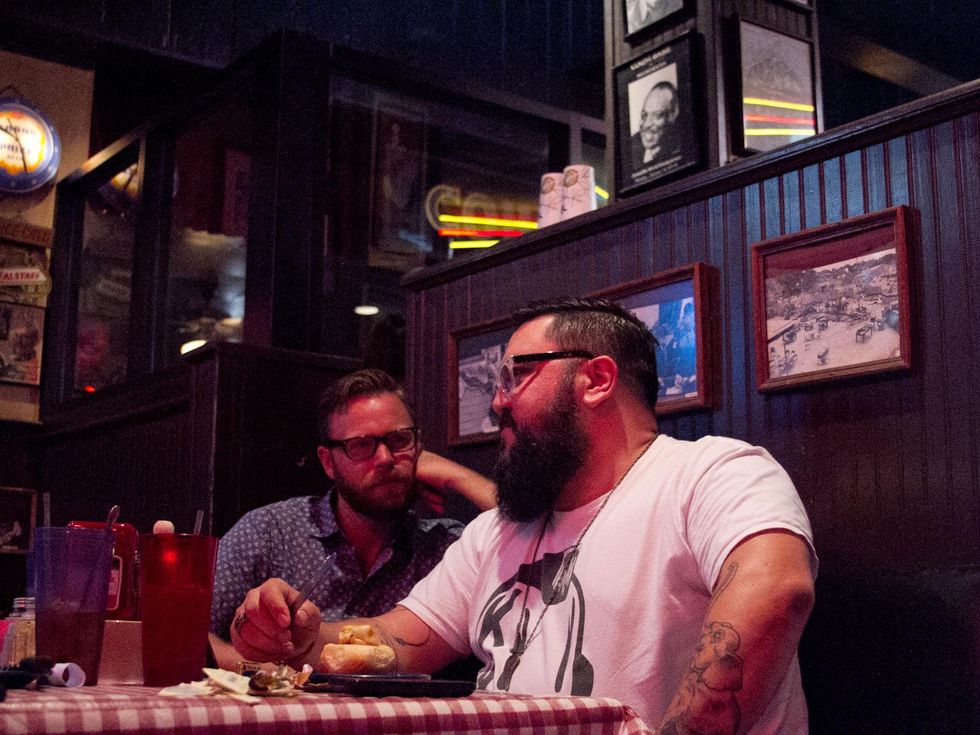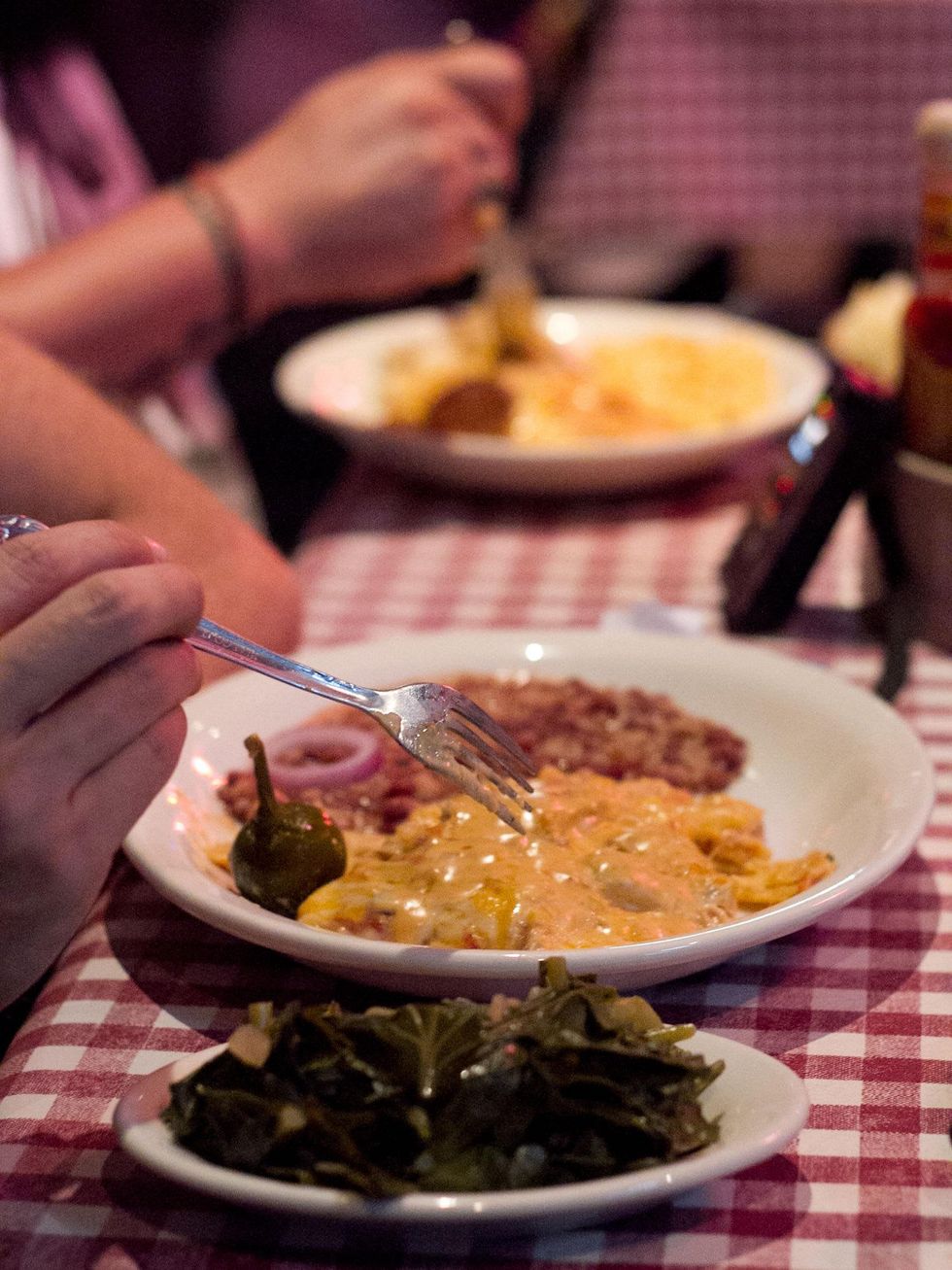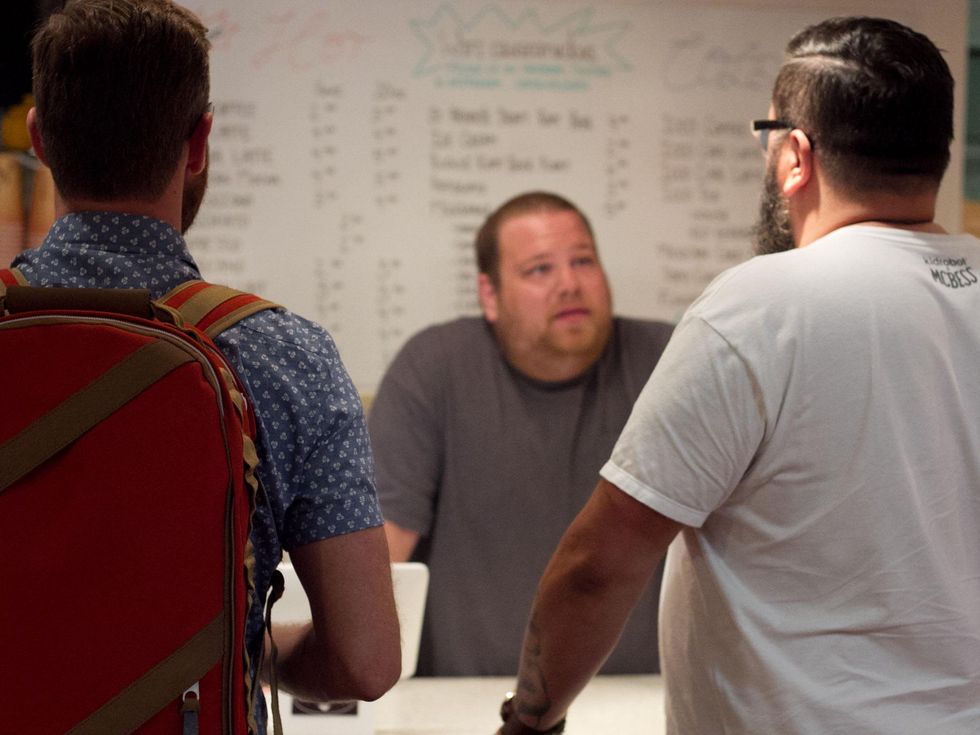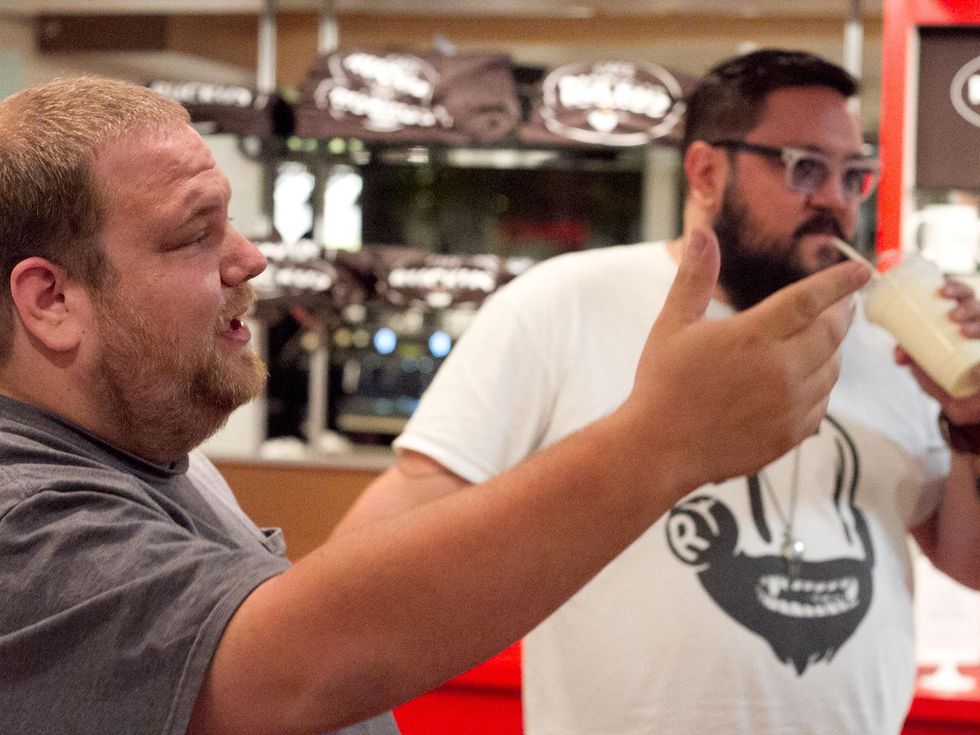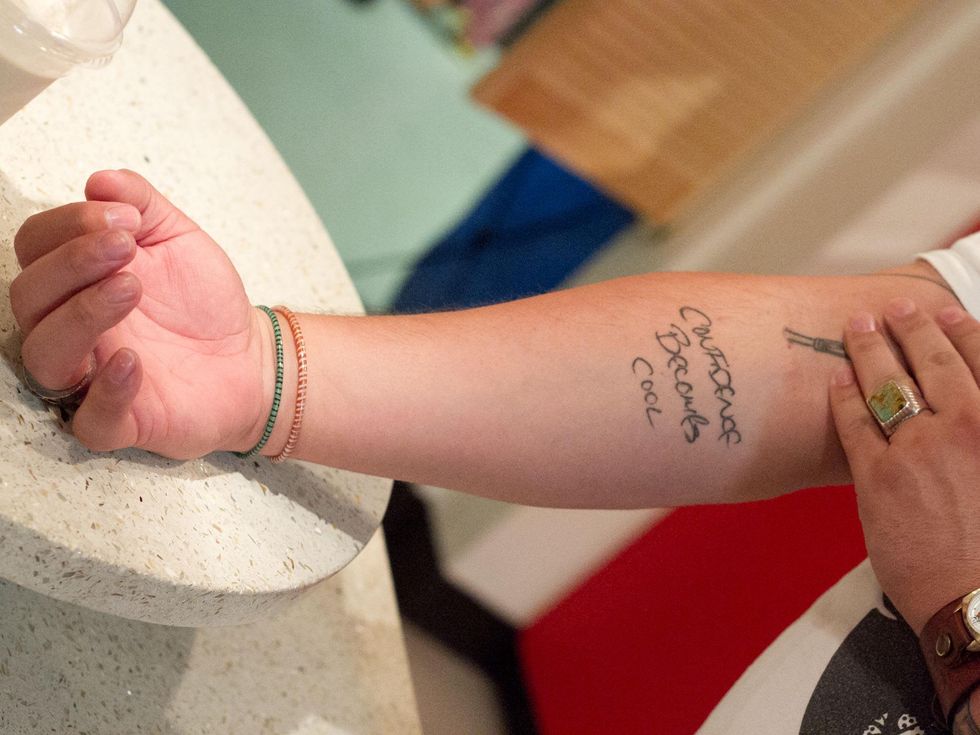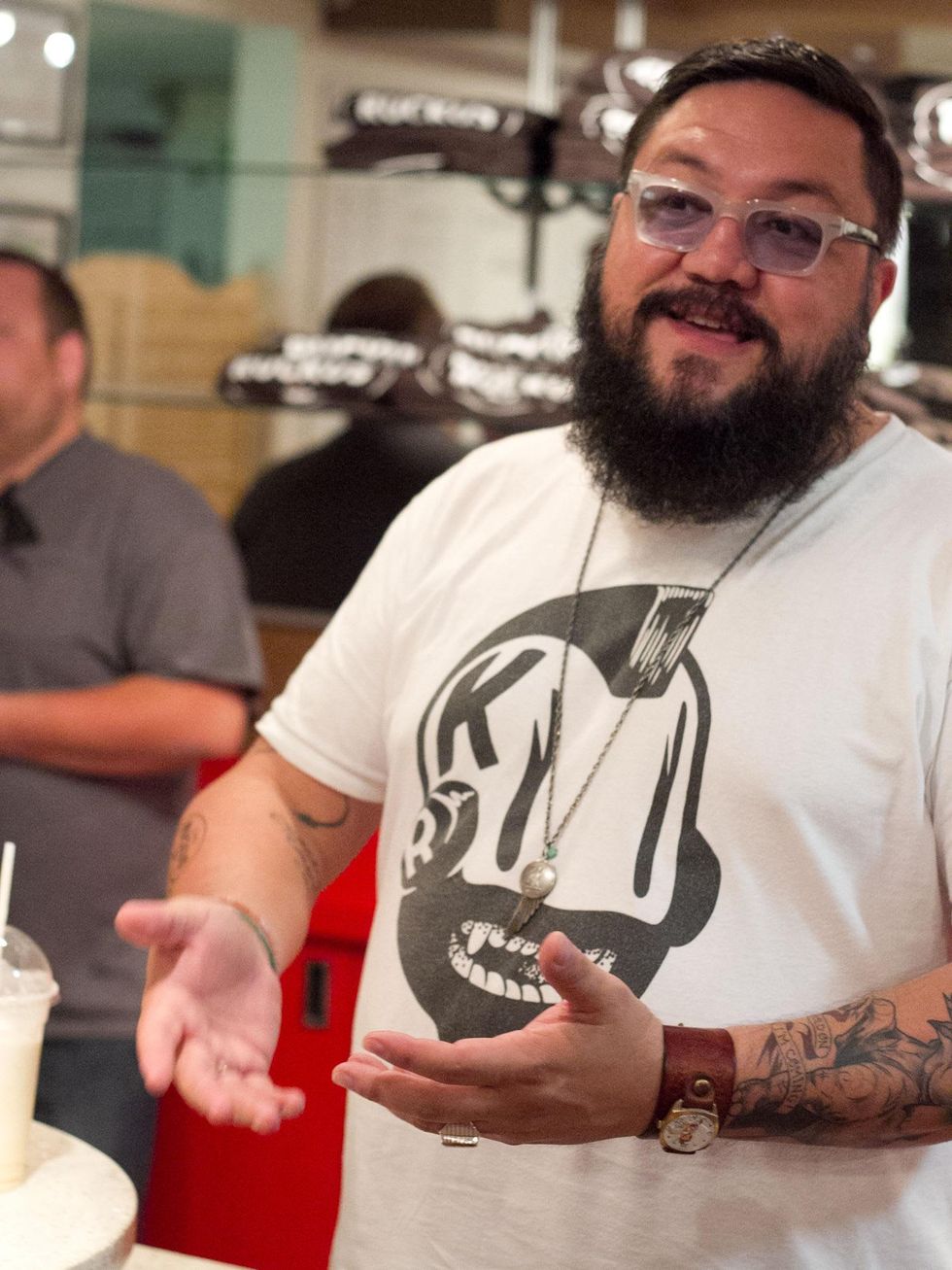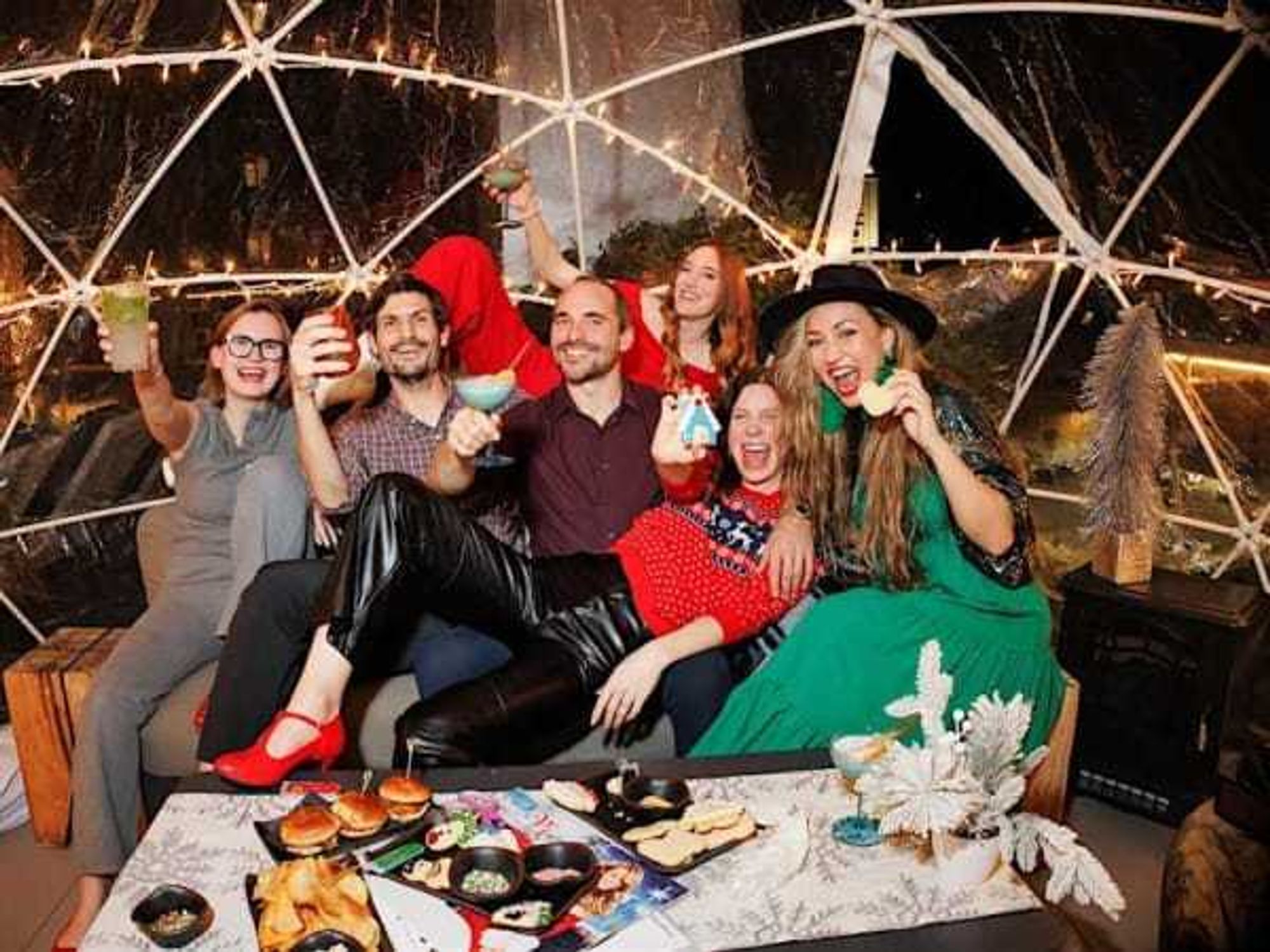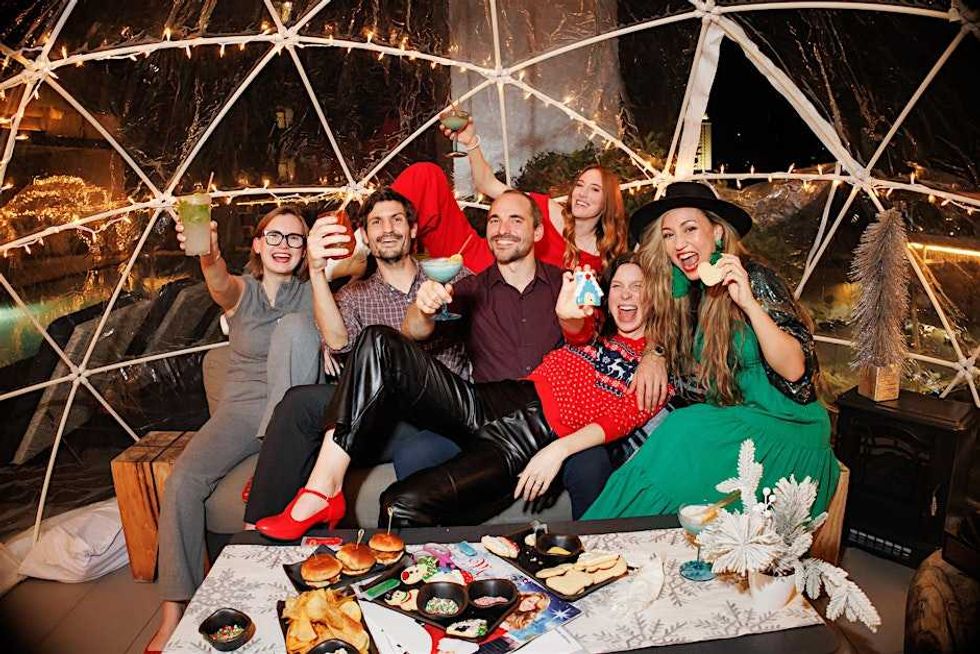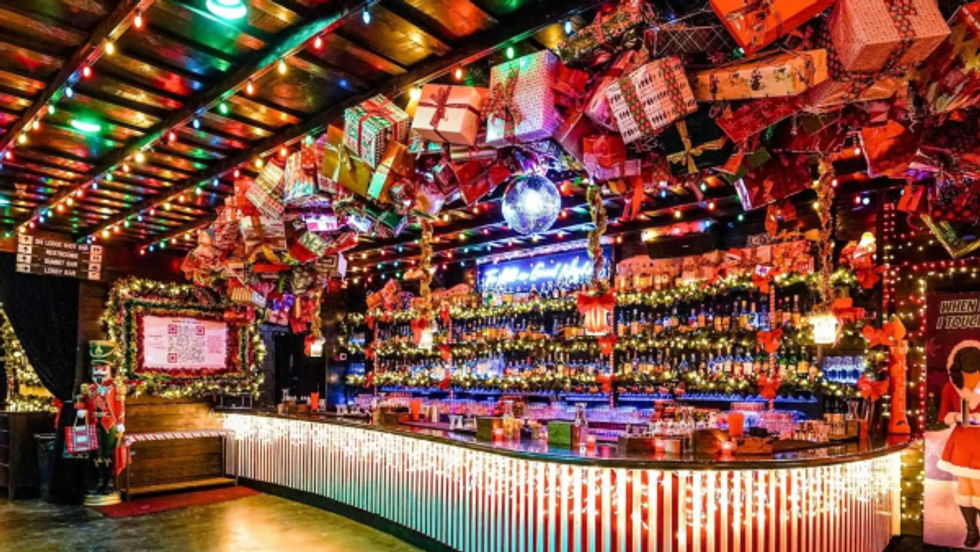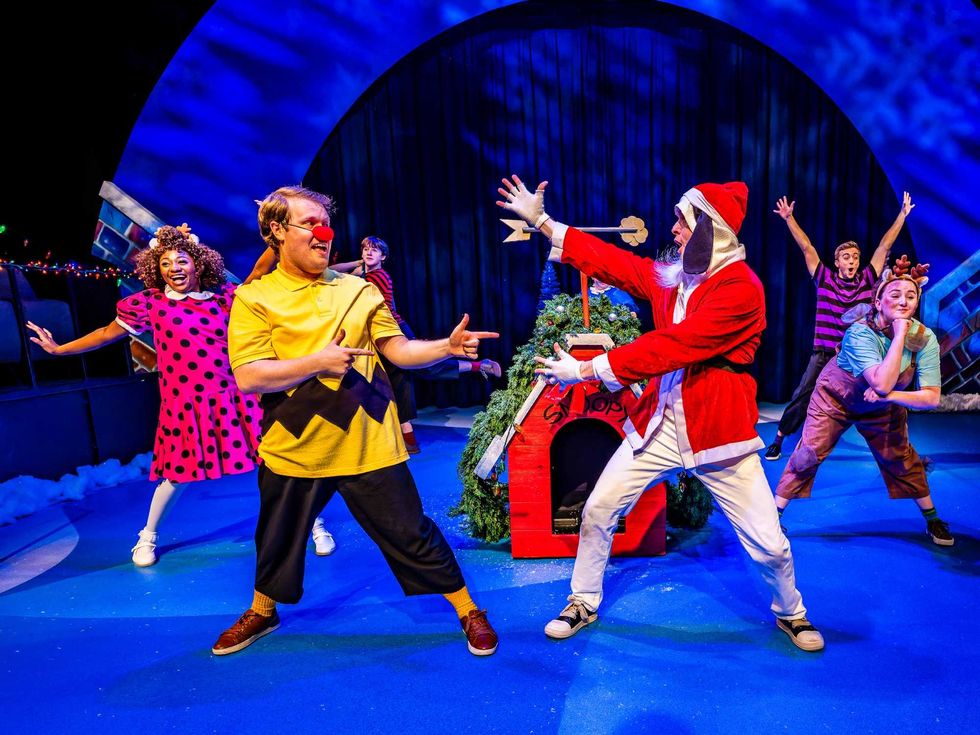A Night with Nakia
A night out with an Austin legend: Nakia on finding his voice
"The Voice was awesome. It was one of the best things I ever did for my career as an artist. It really did help. But it also did a pretty good bit of damage.”
On the patio of the Iron Bear, an LGBTQ bar that’s tucked away from the normal frenzy of downtown, Nakia and I are wrapping up a long night of adventures around the city. As we conclude the evening, he’s sharing his aspirations and hopes for the future. Currently, Nakia’s working on several new projects, and his manager recently called about an offer to sing with an artist he’s always admired.
Beck’s looking for a back-up vocalist. Would you be interested?
“I said, 'Well, shit yeah, man,'” says Nakia. “To go on tour and learn from him as a songwriter, and all I gotta do is sing? Yes! I’ll do it. Send them my stuff.”
And so, as Nakia tells it, his manager gets a call back. They love him. “Beck loves his voice.” To which Nakia's manager replies, “Well that’s funny you said that, he was on The Voice.”
Silence. “No man. He’s out. Beck hates The Voice.”
Nakia is a presence. He’s a big guy with a big beard, lots of tattoos and big, soulful voice. And for 12 years he’s called Austin home. There’s a chance you may not have heard of the Austin singer/songwriter who was a semi-finalist on the first season of NBC’s The Voice, but a lot, and I do mean a lot, of other people have. During the Friday evening we spent together, everywhere we went, someone knew Nakia. And it's not just that they knew him; we’re talking big, smiling, c’mere-give-me-a-big-hug greetings.
His full name is Nakia Daniel Reynoso, but he would prefer you just call him Nakia. He’s played and sung in several Austin bands. He’s had his own residency at Austin venues like The Belmont and The Roost. He’s played the ACL Festival, toured across the U.S. and released several albums. Outside of his reality TV fame, Nakia plays a larger role in Austin’s music scene. He currently sits on Austin’s Music Commission and helps recruit for the The Recording Academy Texas Chapter. He is also a top billed act for Austin’s first annual StarGayzer Festival.
It’s worth mentioning that Nakia doesn’t drink. Initially, I wondered how that would work for this series highlighting Austin nightlife, drinking culture and personalities. And the answer is, wonderfully. When I pitched him the idea of hitting up his three favorite spots around town for a night out, he eagerly agreed — and then suggested seven.
Rocket Electrics
Nakia and I start our evening at Rocket Electrics, an electric bike shop on East Riverside Drive. Just like it sounds, an electric bike is a cross between a motorized scooter and a bicycle. It allows the rider to either pedal or use a throttle connected to an electric motor. I never really figure out how to properly use my electric bike. Throughout the evening, I never master peddling, changing gears, turning on my lights, locking up the bike, or even turning it on. Nakia, however, is a pro.
The folks at Rocket Electrics are very excited when Nakia comes through the doors, beginning the first of some very enthusiastic hellos and hugs during the evening. The store is happy to loan us a couple of bikes, considering Nakia has been a long-time fan of Rocket Electrics. (The shop even provided a bunch of bikes for Nakia and his fans to ride to Blues on the Green when he played in 2012.)
One rapid-fire electric bike tutorial later, we are soaring down Riverside towards Threadgill’s. Nakia is upright and confidently leading the way, while I'm hunched over the bike, sputtering, lurching and swerving behind. We safely make it to the restaurant where Nakia patiently helps me figure out how to turn my bike off and lock it up as the Grateful Dead tribute band, Deadeye, sound checks outside. Then, we head inside the restaurant to join Nakia’s boyfriend, Robert, for dinner.
Threadgill’s
Robert is sitting at what I soon learn is their second favorite table, as their first choice is occupied for the evening. Nakia and Robert are familiar faces at Threadgill’s, eating here at least once a week. The staff and management frequently come by to say hello and chat. One of Nakia’s albums is even on the jukebox.
After a round of Friday dinner specials (King Ranch Chicken) are ordered, Nakia tells me that he calls Austin home because of Robert. “I wouldn’t have left Chicago had I not met Robert and had I not experienced SXSW firsthand,” Nakia says between sips of sweet tea. “I told him I was coming to visit for SXSW and we’ve been together ever since.”
That was back in 2002. Nakia had been living in Chicago for almost a year, performing when he could and working at a record label. “I really loved it there, I loved the music,” he says. “[But] I was very much in love with Robert and felt like this was the spot for me.”
In addition to Austin, Nakia has lived in Chicago, Atlanta and Montgomery after leaving his hometown of Fort Payne, Alabama. “I knew my hometown wasn’t really the place for me,” he says. “So I kept trying other things that brought me closer to that.”
What “that” exactly was took Nakia quite a bit of time to figure out, and it's something he's still working on. “Most of the [moving] happened because I was still trying to find myself. I still am, I think. I’m always trying to be better.”
Before he appeared on The Voice and gained national recognition, Nakia studied computer science, music marketing and worked a series of odd jobs. At different points in his life he’s led cave tours, sold airbrushed T-shirts, knitted socks, read tarot cards for the Psychic Readers Network, worked construction and held an array of positions at fast food joints. Nakia admits that since childhood he’s always loved music, performing, attention and the stage, but music didn’t become his passion until much later.
“[Back then] singing and performing ... were always just hobbies. As long as I had time to write, and play my piano and sing for my friends, then I was happy.”
Living in Austin changed all that. As soon as Nakia arrived, he and one of Robert’s friends started jamming together, just drums and a piano. They played a few shows and even put an EP of what Nakia calls, “Ben Folds and Counting Crows kind of stuff.” And then one of Nakia’s side jobs paid off.
“I was working at Apple. I ended up selling computers to people like Joe Ely, Willie Nelson, Jimmy Dale Gilmore and Jack Ingram. That’s where I met [Fastball’s] Miles Zuniga.” Austin music and Nakia fans will know that he joined up with one of Zuniga’s side project, The Small Stars. From there, Nakia’s career began to take off, and a few years later he found himself a contestant on a new NBC reality show poised to compete with Fox’s American Idol.
“A core problem with activism today,” he says, “is that people believe they can be Facebook activists by just commenting on something.”
Downtown
Back on our bikes, I discover Nakia’s passion for civic involvement in Austin. As a member of the Austin Music Commission, he helps advise City Council on music development issues. And it’s a job he takes seriously. “A core problem with activism today,” he says, “is that people believe they can be Facebook activists by just commenting on something. They don’t understand that shit still happens [from] 9 to 5, downtown, at a meeting where people voice their opinions.”
Nakia is not afraid to share his opinions. Like many, he worries about the gentrification of the east side and questions what Austin’s rapid growth means for our future. And he’s especially passionate about music issues, including one recent hot-button subject from this year’s SXSW.
“Now I’m on a working committee to try and clarify the busking ordinance,” he says, picking up a vanilla milkshake at the new Second Street establishment, Café Ruckus. “Some of the world’s most recognized buskers come to Austin and have fled in fear because our police are so uptight about it. They’ll write people a ticket for no reason because they think they are panhandling.
“Some of these buskers don’t have any other jobs. That’s all they do. It’s how they make their living. And to me, that is the ultimate form of doing what you love and making yourself happy without ever putting out a record or [worrying about] how many hits you get on YouTube. [These are] real life connections with people on the street.”
Same Sky
We cross I-35, and I’m now somewhat more confident on the electric bike, though I'm still struggling to turn it on and off. We cruise through the quiet streets until we come to a beautifully refurbished home in the heart of East Austin that serves as the somewhat secret home of Same Sky Productions. Music producer, David Messier comes out to greet us. Messier and his business partner Andre Cantave started Same Sky in Boston in 2000 before relocating to Austin in 2009. Their client list includes Sade, The Boxer Rebellion and Austinite Gina Chavez. Nakia would like to work with them.
After a tour through the space, Nakia pops out an iPod to play some of his demos for the team that range from funk to pop to soul and electronic. All three bob their heads as they talk about what they like, or what they want to be different. The three talk shop and swap music industry stories. As Nakia shares stories about working with producers in Los Angeles, you get the sense that he’s looking for someone who really understands him — someone who’s looking to produce more than just high-gloss sound.
Both Messier and Cantave seem to understand. Their resumes, just like Nakia’s history, are eclectic. They relay the importance of getting inside a musician’s head and producing something unique and special. No business deals were made or tracks cut, but for an outsider, it was a one-of-a-kind experience: the chance to watch artists collaborate.
Red River Cultural District
On our bikes again, we head back downtown to the newly formed Red River Cultural District. We stop at Holy Mountain, where electronic performance artist Sorne will be playing later. Nakia wants to talk with General Manager James Taylor about some public works issues in the area. It’s a busy night at Holy Mountain, and again, like every other place we’ve been, Nakia is greeted like an old friend by everyone he sees.
Nakia prides himself on being a voice for Austin’s music community — and he's willing to fight a good fight.
Taylor takes a break from bartending to walk Nakia outside and explain issues he’s concerned about, ranging from cracked and broken parts of sidewalk, getting a permit for a loading zone, the possibility of an additional Seventh Street crosswalk, and burned out street lamps. Nakia listens intently, mentally noting all of Taylor’s concerns. Bar patrons drinking, dancing and out for a show may not realize the impact these issues play, but to Taylor and Nakia these are important factors for helping venues stay open and maintaining Austin’s Live Music Capital status.
The same applies when Nakia takes me up the block to Elysium to meet with owner John Wickham, who happens to be hanging out with SXSW General Manager James Minor. Nakia has stopped by to discuss the west side of Red River and its sidewalk, or lack thereof.
“You see that sidewalk over there,” says Nakia pointing across the street. “It’s just basically a drunk trap. Especially during South By with the really high volume [of traffic].”
“People can fall down there,” interjects Wickham. “But if you just leveled that whole thing, you could use the area between the sidewalk and street, to put up bike racks ... you get a dumpster and pour some concrete. It’s not a million dollar project.”
Conversation moves to getting a roof permit for one of Wickham’s other establishments down the street. Nakia takes it just as seriously as every other issue he’s heard through the evening. It's clear that undertaking each one is no simple task, and is likely an uphill battle. But he prides himself on being a voice for Austin’s music community and is willing to fight a good fight.
Iron Bear
“In Austin what I’ve discovered is people know who I am. They know my name. They know my face and a lot of people know some of the things I’ve done. I still think that a lot of people don’t really know my music.”
Because of The Voice, Nakia was able to experience the kind of fame many aspiring musicians only dream of. He tells stories of fans screaming his name, playing sold-out shows on tour, paparazzi, being constantly recognized, and meeting his idols. But as quickly as he skyrocketed to fame, it all vanished. “Without Robert, without therapy, without a really good support network — I would be crazy right now, because it really is night and day. It’s a sobering reality. I still feel like I have a lot of work to do.”
But he hasn’t given up. As Nakia tells it, he spends many nights like this, out on the town, talking to musicians, working with club owners and going to different venues. He’s driven with seemingly endless energy. This town is special for him, and by taking care of it, he’s rediscovered his voice. As Nakia put it, he wouldn’t change anything.
“Look,” he tells me. “I love people and I love this city. I love seeing good things happen. If all the decisions and events of my life led to this situation, where I’m surrounded by things that make me happy, then I wouldn’t change anything.”
